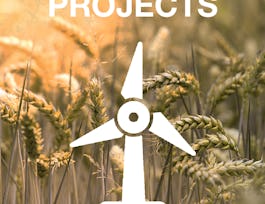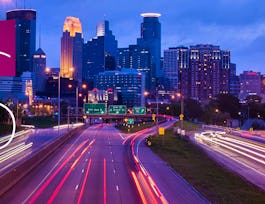This course will include the evaluation of best practices in parking strategies for sustainable cities. Some of the examples include downtown parking policy, understanding the high cost of free parking, the development of parking sheds, managing neighborhood parking, hiding parking lots and other parking strategies and practices. There will also be a case study of the Victoria Canada parking management approach that investigates problems with current work on parking planning and discusses the cost of parking facilities and potential savings from improved management. There will also be an introduction to the use of form-based codes for application to sustainable cities. A variety of building forms such as mid-rise and high-rise buildings, apartment houses, live/work buildings, single-family homes, and row houses will be assessed. A particular emphasis will be on vacant property strategies for equitable and healthy communities. Vacant property strategies for reclamation will be evaluated with an analysis of the revitalization cycle. Green building construction principles will be evaluated in consideration for natural light and ventilation, solar orientation, use of sustainable building materials, energy efficient design and on-site energy generation as well as other considerations. Building architectural design will leverage climate, construction materials, and the culture and history of the area. Architecture choices should have a consistent appearance within the community and provide residential privacy. Other considerations include protection and preservation of historic buildings, use of universal design concepts, careful placement of civic buildings and the appropriate use of subsidized housing.



Transportation, Sustainable Buildings, Green Construction
This course is part of Sustainable Cities Specialization

Instructor: William Roper
Sponsored by ITC-Infotech
18,859 already enrolled
(180 reviews)
Recommended experience
Skills you'll gain
- Transportation Management
- Architectural Design
- Natural Resource Management
- Building Design
- Transportation Operations
- Civil and Architectural Engineering
- Environmental Resource Management
- Transportation, Supply Chain, and Logistics
- Supply Chain Management
- Supply Chain
- Land Management
- Logistics
- Environment and Resource Management
- Architecture and Construction
- Environmental Policy
- Drafting and Engineering Design
- Logistics Management
Details to know

Add to your LinkedIn profile
3 assignments
See how employees at top companies are mastering in-demand skills

Build your subject-matter expertise
- Learn new concepts from industry experts
- Gain a foundational understanding of a subject or tool
- Develop job-relevant skills with hands-on projects
- Earn a shareable career certificate


Earn a career certificate
Add this credential to your LinkedIn profile, resume, or CV
Share it on social media and in your performance review

There are 3 modules in this course
This module will present and evaluate the following topics: downtown parking policy, the high cost of free parking, the use of parking sheds, neighborhood parking, hiding parking lots, parking lot environmental quality, parking conversions, parking lot access, and rear access parking. The module will also introduce a parking rating system and an overview of the Victoria Canada parking management best practices.
What's included
4 videos3 readings1 assignment1 discussion prompt
Sustainable smart growth codes describe buildings, not in terms of their use for specific measurements, but in terms of their form. Using this framework, the resulting building types that will be described in this module. This module will also address vacant property strategies for equitable and healthy communities as well as the revitalization cycle.
What's included
5 videos1 reading1 assignment
Green Construction and Green buildings are an important part of the sustainable city. This module will assess 12 different aspects of green buildings and green construction to meet smart growth objectives. The importance of architecture will also be accessed. The architectural design of the building should be reflective of the climate and culture of the neighborhood. Most appropriate and ecological buildings often have the character of the local building traditions. The consistency of appearance is also valuable in fortifying the character of the neighborhood and establishing pride in the community.
What's included
5 videos2 readings1 assignment1 plugin
Instructor

Offered by
Why people choose Coursera for their career




Learner reviews
180 reviews
- 5 stars
76.11%
- 4 stars
18.88%
- 3 stars
2.22%
- 2 stars
1.11%
- 1 star
1.66%
Showing 3 of 180
Reviewed on Sep 18, 2023
this course is very informative useful and up to date.
Reviewed on Jul 28, 2023
well all lelectures was very helpful and useful me. But no attraction in lectures and boring feel.
Reviewed on Apr 29, 2023
Very useful course . it was my first course i learned alot and it was not hard to learn
Recommended if you're interested in Physical Science and Engineering

Coursera Project Network

University of Colorado Boulder

Lund University

École Polytechnique Fédérale de Lausanne

Open new doors with Coursera Plus
Unlimited access to 10,000+ world-class courses, hands-on projects, and job-ready certificate programs - all included in your subscription
Advance your career with an online degree
Earn a degree from world-class universities - 100% online
Join over 3,400 global companies that choose Coursera for Business
Upskill your employees to excel in the digital economy


